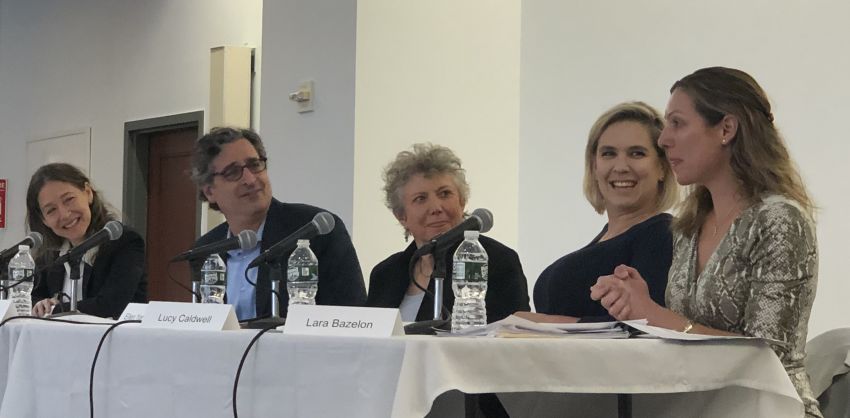
When does representing a client become unethical? This question framed the discussion at “Client Selection and #MeToo: Questions Raised by the Sullivan Controversy,” a panel event hosted by the Burns Center for Ethics on Wednesday.
Burns Center Co-Directors Jessica Roth and Anthony Sebok moderated the discussion. The panel focused primarily on the ethical and legal ramifications of Harvard Professor Ronald Sullivan representing Harvey Weinstein and how the Harvard students’ reactions were influenced by the #MeToo Movement.
“This is the pinnacle of the MeToo movement,” said Ellen Yaroshefsky, Professor of Legal Ethics at Hofstra University and former Cardozo professor. Yaroshefsky described Harvard and Ron Sullivan as a “microcosm” of the common decisions that challenge lawyers in their routine client selection processes. She questioned whether Sullivan’s leadership roles in the Harvard community, such as his responsibilities as a “dorm dad,” should’ve excluded him from representing Weinstein.
“What the lawyer does represents what the lawyer thinks,” she said. “There are real-life consequences of a lawyer making a choice.”
Panelist Lara Bazelon, Professor and Director of the Criminal Juvenile Justice and Racial Justice Clinical Programs, University of San Francisco School of Law, considered the law students’ perspective.
“There was an enormous amount of protest,” Bazelon said. For some students, “his mere presence was a violation.”
Bazelon noted that students said they started feeling unsafe around Sullivan simply because he represented Weinstein, who she described as the “poster child for sexual assault.” She added that Weinstein was not Sullivan’s first controversial client. Sullivan also represented football player Aaron Hernandez in a double murder case.
The message sent by the student protests was “you cannot represent someone that most people despise,” Bazelon said. “You should really carve out monsters from your client list.”
Sebok asked whether causing others distress was enough of a reason not to represent a client. “What is the public reason?” he asked. Sebok shifted the focus to the victims’ testimonies and how damaging it can be for the victim to be denied in court.
Yaroshefsky agreed: “Victims do not feel like they have an appropriate role in the criminal justice system.”
She said the victims and the young people in the community should be educated on the 6th amendment, which guarantees the right to counsel.
Yaroshefsky also offered advice for lawyers in selecting their future clients. She said they should ask themselves: “Is this the kind of client to which I’d dedicate my knowledge, training and skills?”
